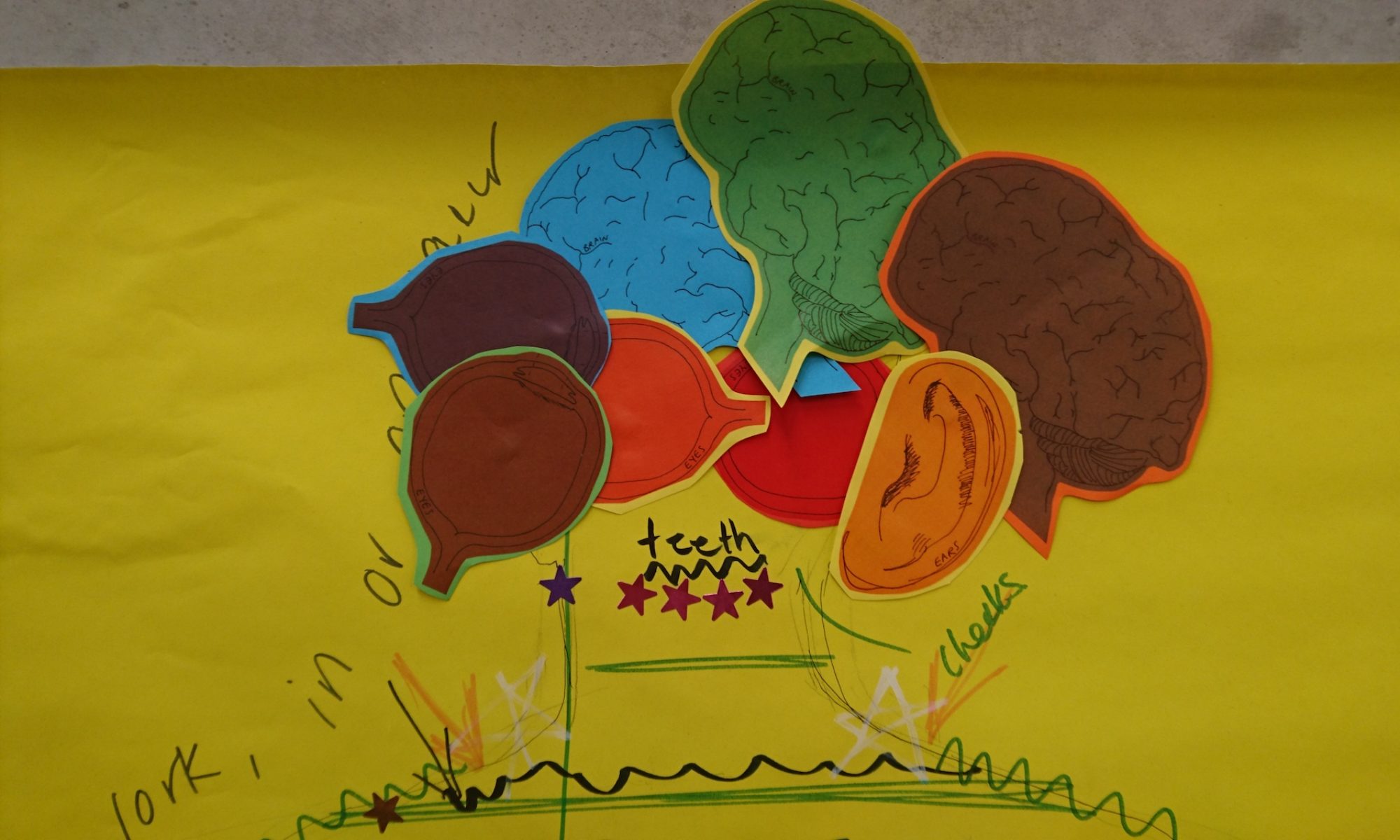Monday 19 June, 4-5.30pm, BST, online, no need to book. Click here to join.
In this final online panel of the Loosen up! series, we will discuss perspectives on methods of analysis with Emma Cocker, Tinashe Mushakavanhu and Helen V. Pritchard.
Emma Cocker will talk about ‘conversation-as-material’. Conversation-as-material is a language-based artistic research practice for attempting to speak from within the experience of collaborative artistic exploration, a linguistic practice attentive to the lived experience of aesthetic co-creation…Conversation-as-material has emerged as a practice of collaborative writing, which unfolds through the interplay of different voices ‘turning about’ together in conversation. In this sense, the practice can be differentiated from that of interview —for in the practice of conversation-as-material there is no researcher/researched dichotomy. Within the practice, an attempt is made to develop an approach to writing that finds expression first through verbal conversation, which is then subsequently distilled, even densified, towards poetic text. Also see Emma’s Writing without writing.
Tinashe Mushakavanhu will talk about his work Reincarnating Marechera: Notes On a Speculative Archive. Dambudzo Marechera’s death on August 18, 1987 is an event that remains unremarked. In Reincarnating Marechera: Notes On a Speculative Archive, Mushakavanhu interprets this event as a moment of radical praxis in the Zimbabwean imaginary, mining three overlapping archives—Marechera’s own writings, his historical and theoretical legacy, and an imaginative archive that responds creatively to gaps in the first two. Here, Mushakavanhu also explores the affective relationship between a critic and his object of study, grappling with the transit between the historical archive and the critical present. In doing so, through text and visuals, the book is a revelation of countless ruptures and of the inexhaustibility of documenting a mercurial subject like Marechera.
Helen V. Pritchard will share their work with The Institute of Technology in the Public Interest––a trans-practice gathering of activists, artists, engineers and theorists initiated by Miriyam Aouragh, Seda Gürses, Helen Pritchard and Femke Snelting. In particular Helen will discuss the TITiPi method of working on Infrables. A method in which analysis is a practice of solidarity and “radical kinship” (a term expanded by their collaborator in TITiPi Miriyam Aouragh). Infrables make negative use-cases and un-fixing bug reports as a solidary praxis. They are articulations of what extractive digital infrastructures are, and what they are doing. Generated through narrative and extra-narrative accounts, infrables identify oppressive infrastructures or tools, but they also make space for other technological attitudes. How can we follow and understand infrastructural shifts through shared experiences? To what extent do individual experiences stand for a larger whole? What happens when you share, retell, adapt, rewrite someone else’s experiences?
Biographies:
Tinashe Mushakavanhu is Junior Research Fellow in African and Comparative Literature at Oxford University. The central theme of Tinashe’s research is the role of literary culture in documentation, historical knowledge, and political power. He has particular interests in the aesthetics and materiality of writing; archives, and archival theory; translation; African and diaspora literatures, digital humanities, romanticism, creative writing, media studies, and comparative literatures. The work manifests in interdisciplinary modalities. It blurs creative and critical methods, and writing genres, in order to imaginatively reconfigure the strictures that conventionally separate the poetic and the theoretical.
Emma Cocker is a writer-artist and academic and Associate Professor at Nottingham School of Art & Design. Operating under the title Not Yet There, her research often addresses the endeavour of creative labour, focusing on models of (art) practice and subjectivity that resist or refuse the pressure of a single or stable position by remaining willfully unresolved. Not Yet There unfolds as an interdisciplinary, hybridized enquiry that operates restlessly along the threshold of writing/art, involving performative, collaborative and creative prose approaches to writing about, parallel to and as art practice.
Helen V. Pritchard is Professor and Head of Research IXDM, HGK Basel, University of Applied Sciences and Arts Northwestern Switzerland FHNW, where they teach on the MA Experimental Design. They also hold an associate professorship in Queer Feminist Technoscience at University of Plymouth.Helen is an artist-designer, geographer, activist and queer love theorist. Their work considers how computational infrastructures and digital media impact social and environmental practice. Helen works with participatory and creative practice methods for co-research, drawing on trans*feminist and queer approaches. Their research addresses how practices configure the possibilities for life—or who gets to have a life—in intimate and significant ways. As a practitioner they work together with companions to make propositions and designs for environmental media, regenerative energy and computing otherwise, developing methods to uphold a politics of queer survival and practice.
